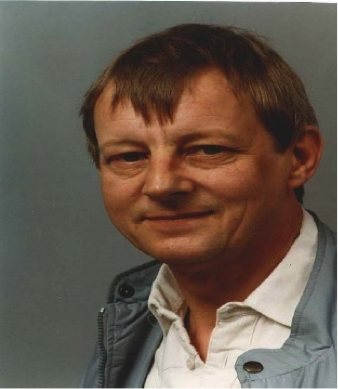This is part of a series remembering and honoring evaluation pioneers leading up to Memorial Day in the USA (May 30).
My name is Ernest House and I’ve been writing about social justice and democratic evaluation for four decades. Barry MacDonald was an early colleague, ally, and friend in developing these ideas. He directed the Centre for Applied Research in Education (CARE) at the University of East Anglia in the 1980s and 1990s where he laid a foundation for Democratic Evaluation.
Pioneering and Enduring Contributions:

MacDonald argued that evaluators have a responsibility to inform public dialogue. He saw British governance as closed, elitist, and embedded in social class privilege. Information was power, used mostly against those lower in the hierarchy. The issue was who gets to know what about whom. Evaluation should redress such inequalities. His harshest criticisms were of abuses of power. He had suffered humiliations, and as a working class, Highland Scot, he already had a formidable head start on hostility.
He was widely influential, personally and professionally, especially with those who met him. He studied people and knew their stories. If you know people’s stories, you can be highly persuasive by connecting your story to their story. If your story becomes part of their story, you’ve secured a strong advocate.
The last time I saw Barry, in his smoky lair in Norwich, he asked me to write something about him.
For Barry,
Whose friendship, ideas, and democratic ideals have enriched my personal and professional life; whose courage and integrity in the face of political pressures and payoffs have inspired, and whose wit, wordplay, and originality epitomize style and eloquence. My evaluation novel is a tribute to forty years of our friendship.
Ernie House, 4 October 2010
If he were here now, he might say, “Why are you in this blog? This is about me, not you.” I’d reply, “I’m trying to put a positive spin on your life, and I don’t have that much to work with. I have to bring in material from outside.” He’d chuckle, take a drag from his cigarette, and say, “Maybe so, maybe so.”
I’ve often thought that when someone close to you dies, part of you dies with them, the times together, the conversations. With Barry’s death, many of us lost a sizable chunk. Evaluation lost one of its most brilliant, flamboyant, founding characters.
Resources:
Kushner, S. House, E., Norris, N. & Adelman, C. (2013). In Memoriam: Barry MacDonald (1932–2013). American Journal of Evaluation 34(3): 436-437.
Nigel, N. (2015). Democratic evaluation: The work and ideas of Barry MacDonald. Evaluation, 21(2):135–142.
Barry MacDonald Papers, University of East Anglia. https://www.uea.ac.uk/education/research/care/resources/archive/barry-macdonald
The American Evaluation Association is celebrating Memorial Week in Evaluation: Remembering and Honoring Evaluation’s Pioneers. The contributions this week are remembrances of evaluation pioneers who made enduring contributions to our field. Do you have questions, concerns, kudos, or content to extend this aea365 contribution? Please add them in the comments section for this post on the aea365 webpage so that we may enrich our community of practice. Would you like to submit an aea365 Tip? Please send a note of interest to aea365@eval.org . aea365 is sponsored by the American Evaluation Association and provides a Tip-a-Day by and for evaluators.
